Landing that dream college hinges on more than just good grades and stellar test scores. That application essay? It’s your chance to shine, to show the admissions committee who you are beyond the transcript. But staring at that blank page? Intimidating, right?
Forget those generic prompts. We’re diving deep into the “essay topics” that genuinely resonate, the ones that unlock your authentic voice and tell a compelling story. Consider this your guide to crafting an essay that not only gets you noticed but also gets you accepted.
College Essay Topics That Actually Work
Choosing the right “essay topics” is the first and most crucial step. But how do you know which ones will truly work? It’s about finding the sweet spot where your passions intersect with a story that highlights your character, resilience, and potential. Let’s explore some categories and specific examples to get your creative juices flowing:
The “Overcoming Obstacles” Narrative
Life throws curveballs. Colleges want to see how you handle them.
- The Challenge That Shaped You: Don’t just recount the event; delve into how it changed your perspective. Did a sports injury teach you about patience and perseverance? Did a family hardship instill empathy and responsibility?
- Example: Instead of simply saying, “My parents lost their business,” explain how you stepped up to support your family, juggling school with a part-time job, and the financial literacy you gained in the process.
- The Failure That Fueled Growth: Colleges aren’t looking for perfection; they’re looking for growth.
- Example: Did you bomb a major exam? Explain how you analyzed your study habits, sought help from teachers, and developed a more effective learning strategy. Focus on the “after” – the positive changes you made.
- The Time You Stood Up for Something: Demonstrating your moral compass can be powerful.
- Example: Did you witness injustice and take action, even if it was difficult? Perhaps you challenged a school policy, advocated for a cause you believe in, or defended someone being bullied.
Key Takeaways:
- Authenticity is key: Don’t exaggerate or fabricate. Your genuine voice will resonate more than a contrived story.
- Show, don’t tell: Use vivid language and specific details to bring your experience to life. Avoid generalizations.
- Focus on the “so what?”: What did you learn from the experience? How did it make you a better person? How will you use this knowledge in college?
The “Passion Project” Spotlight
What truly excites you? Showcasing your passions reveals your drive and commitment.
- The Deep Dive: Don’t just list your interests; highlight a specific project you dedicated yourself to.
- Example: If you’re passionate about coding, describe a complex app you built, the challenges you faced, and the innovative solutions you developed. Quantify your accomplishments whenever possible (e.g., “increased user engagement by 20%”).
- The Creative Pursuit: Artistic endeavors demonstrate creativity and dedication.
- Example: Perhaps you wrote a novel, composed music, or created a series of paintings. Explain your artistic process, the inspiration behind your work, and what you hope to communicate through your art.
- The Community Impact: How have you used your skills to make a difference in your community?
- Example: Did you start a tutoring program, organize a fundraising event, or volunteer at a local charity? Focus on the impact you made and the leadership skills you developed.
Key Takeaways:
- Specificity is crucial: Avoid vague statements like “I’m passionate about helping others.” Drill down into a specific area of interest.
- Show your enthusiasm: Let your passion shine through your writing. Use vivid language and descriptive details to convey your excitement.
- Connect to your future goals: Explain how your passion relates to your academic interests and career aspirations.
The “Unique Perspective” Angle
What makes you, you? Colleges seek students who bring diverse perspectives to the campus community.
- The Cultural Identity: Explore your heritage, traditions, and the values that shape your worldview.
- Example: Did you grow up in a bicultural household? How has this influenced your understanding of the world and your ability to connect with people from different backgrounds?
- The Unconventional Experience: Did you travel extensively, live abroad, or have a unique upbringing?
- Example: Perhaps you spent a year volunteering in a developing country. Describe the cultural immersion, the challenges you faced, and the lessons you learned about global citizenship.
- The Personal Belief: Share a deeply held conviction and explain how it guides your actions.
- Example: Are you a staunch advocate for environmental sustainability? Explain your commitment to reducing your carbon footprint and inspiring others to do the same.
Key Takeaways:
- Be authentic and respectful: Share your perspective honestly and thoughtfully, without imposing your views on others.
- Connect to broader themes: Relate your personal experiences to universal themes like identity, community, and social justice.
- Demonstrate self-awareness: Show that you understand your own biases and limitations, and that you’re open to learning from others.
The “Intellectual Curiosity” Exploration
Colleges are academic environments. Showcasing your intellectual curiosity demonstrates your eagerness to learn and contribute to the academic community.
- The Book That Changed Your Life: Discuss a book that profoundly impacted your thinking and worldview.
- Example: Don’t simply summarize the plot. Analyze the book’s themes, discuss its impact on your own beliefs, and explain how it inspired you to explore new ideas.
- The Problem You Want to Solve: Identify a complex issue that intrigues you and explain how you plan to tackle it.
- Example: Are you concerned about climate change, social inequality, or healthcare disparities? Outline your research interests, propose potential solutions, and explain how you hope to contribute to the field.
- The Academic Pursuit: Highlight a specific research project, independent study, or academic challenge you undertook.
- Example: Perhaps you conducted original research in a science lab, wrote a thesis on a historical topic, or participated in a debate competition. Focus on the intellectual challenges you faced and the insights you gained.
Key Takeaways:
- Show, don’t tell: Don’t just say you’re “intellectually curious.” Demonstrate your passion for learning through specific examples.
- Go beyond the classroom: Highlight intellectual pursuits you undertook outside of your formal coursework.
- Connect to your future goals: Explain how your intellectual curiosity relates to your academic interests and career aspirations.
The “Small Moment, Big Impact” Reflection
Sometimes, the most profound insights come from unexpected places.
- The Conversation That Shifted Your Thinking: Describe a meaningful conversation that changed your perspective on a particular issue.
- Example: Perhaps you had a conversation with a family member, friend, or mentor that challenged your assumptions and broadened your understanding of the world.
- The Observation That Sparked a Realization: Discuss an everyday observation that led to a significant insight.
- Example: Perhaps you observed a social dynamic, witnessed an act of kindness, or encountered a moment of beauty that sparked a new awareness.
- The Unexpected Connection: Explain how you found common ground with someone who is very different from you.
- Example: Perhaps you forged a friendship with someone from a different cultural background, political affiliation, or social class.
Key Takeaways:
- Focus on introspection: Delve into your thoughts and feelings to reveal the significance of the moment.
- Show your vulnerability: Be willing to share your doubts, uncertainties, and moments of self-discovery.
- Connect to larger themes: Relate your personal experience to universal themes like empathy, understanding, and connection.
Common Essay Writing Mistakes to Avoid
Even with the best “essay topics,” certain pitfalls can derail your application. Steer clear of these common mistakes:
- Clichés and Overused Topics: Avoid generic stories about winning the big game, going on a mission trip, or losing a loved one (unless you have a truly unique angle).
- Summarizing Your Resume: Your essay should complement your application, not repeat it.
- Trying Too Hard to Impress: Authenticity trumps artificiality. Be yourself, not who you think the admissions committee wants you to be.
- Poor Grammar and Typos: Nothing undermines your credibility faster than sloppy writing. Proofread carefully.
- Lack of Focus: Stay on topic and avoid rambling. Every paragraph should contribute to your overall message.
- Negative Tone: Even when discussing challenges, maintain a positive and hopeful outlook.
Elevate Your Essay with These Techniques
Here are some ways to make your essay stand out.
Use Vivid Language and Sensory Details
Engage your reader’s senses by using descriptive language that brings your story to life.
- Instead of: “I was nervous.”
- Try: “My palms were slick with sweat, and my heart hammered against my ribs like a trapped bird.”
Show, Don’t Tell
Let your actions and experiences speak for themselves, rather than simply stating your qualities.
- Instead of: “I am a hard worker.”
- Try: “For three summers, I woke before dawn to work on my family’s farm, learning the value of persistence and dedication.”
Inject Your Personality and Voice
Let your unique personality shine through your writing. Use humor, wit, and honesty to connect with your reader on a personal level.
Craft a Compelling Narrative Arc
Create a story with a clear beginning, middle, and end. Build tension, introduce conflict, and resolve it in a satisfying way.
Seek Feedback and Revise
Ask teachers, counselors, and trusted friends to read your essay and provide constructive criticism. Be open to feedback and willing to revise your work.
E-E-A-T: Building Credibility into Your Essay
Remember Google’s E-E-A-T (Experience, Expertise, Authoritativeness, and Trustworthiness)? While this is designed for web content, the core ideas are relevant for college essays as well.
- Experience: Ground your essay in your lived experiences. This makes your story more compelling and authentic.
- Expertise: While you’re not expected to be an expert, demonstrate a deep understanding of the topic you’re writing about.
- Authoritativeness: This is less directly applicable, but you can subtly build authority by citing credible sources (if relevant) and demonstrating a nuanced understanding of complex issues.
- Trustworthiness: Be honest, transparent, and ethical in your writing. Avoid exaggeration or embellishment.
Hemingway’s Simplicity: A Style Guide for Your Essay
Channel Ernest Hemingway’s minimalist style to create a clear and impactful essay:
- Short Sentences: Keep sentences concise and to the point.
- One-Syllable Words: Favor simple, everyday language over complex jargon.
- Positive Language: Frame your experiences in a positive light, focusing on growth and resilience.
- Cut the “-ily” Adverbs: Eliminate unnecessary adverbs that add clutter without adding meaning.
- Simpler Words: Opt for simpler words and language to get your message across.
Beyond the Prompt: Unlocking Your Essay Potential
The key to writing a successful college essay isn’t just finding the right “essay topics;” it’s about using those topics as a springboard for self-discovery and authentic expression. It’s about showing the admissions committee who you are, what you care about, and what you’re capable of achieving. Take your time, be honest, and let your voice shine.
And when you’re ready to write your article with utmost care and quality, make sure to keep in mind to write in a reader-friendly format, always add value in every sentence you write, use transition words to relate contents with each other, avoid using the most common words by AI generators and that your content is high-quality (meets google’s helpful, reliable, people-first content), that it must strictly and successfully pass these assessment questions.
After that, edit them again and again for perfection.
Should You Even Apply?
After all this advice, you might still ask if you need to write these essays at all. Well, if you are reading this, there is a very high chance that you are planning to apply to college. You need to ask yourself if college is even right for you, and whether you need an application essay to get into said college in the first place. Ultimately, the answer is that most four-year colleges still need a college application essay to get in, and that means you should get ready to write, prepare, and edit to make the best essay possible.

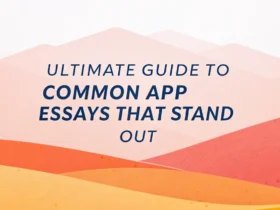


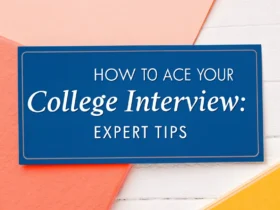
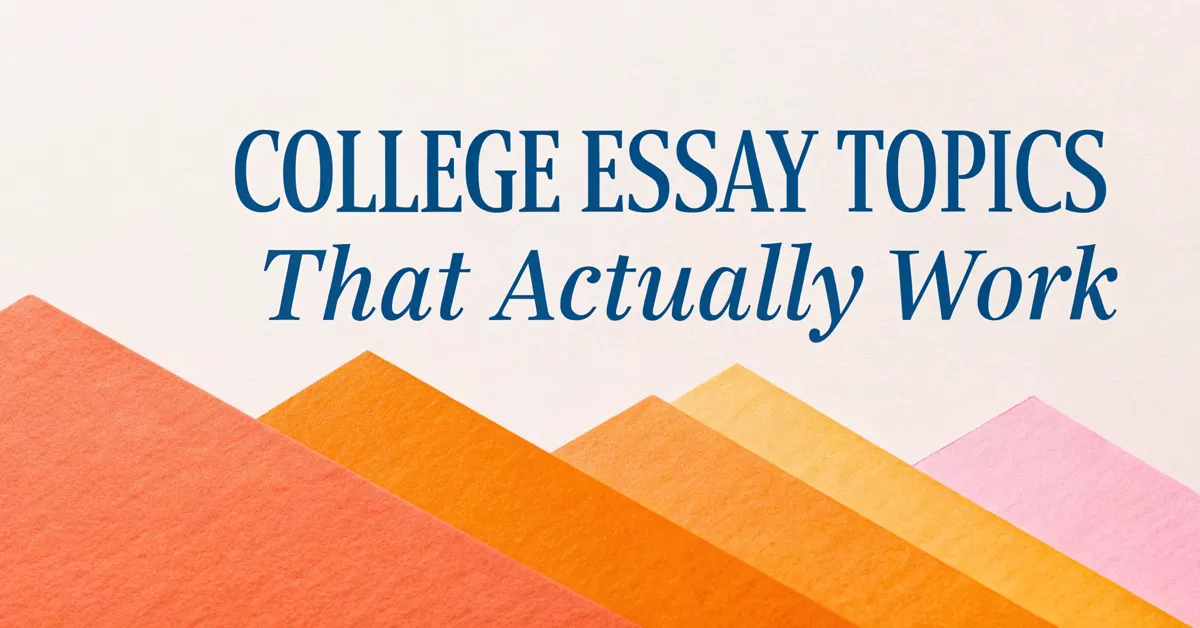
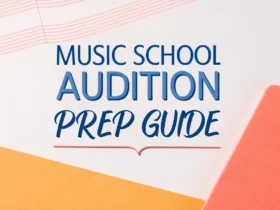






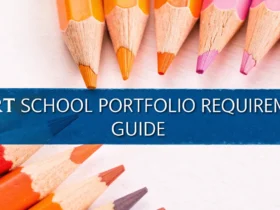

Leave a Reply
View Comments